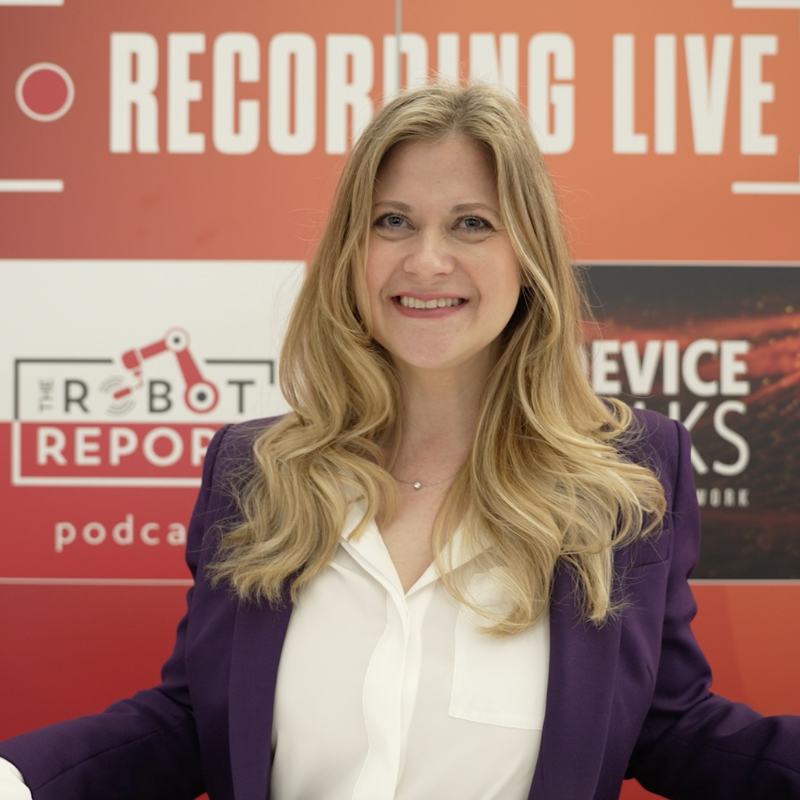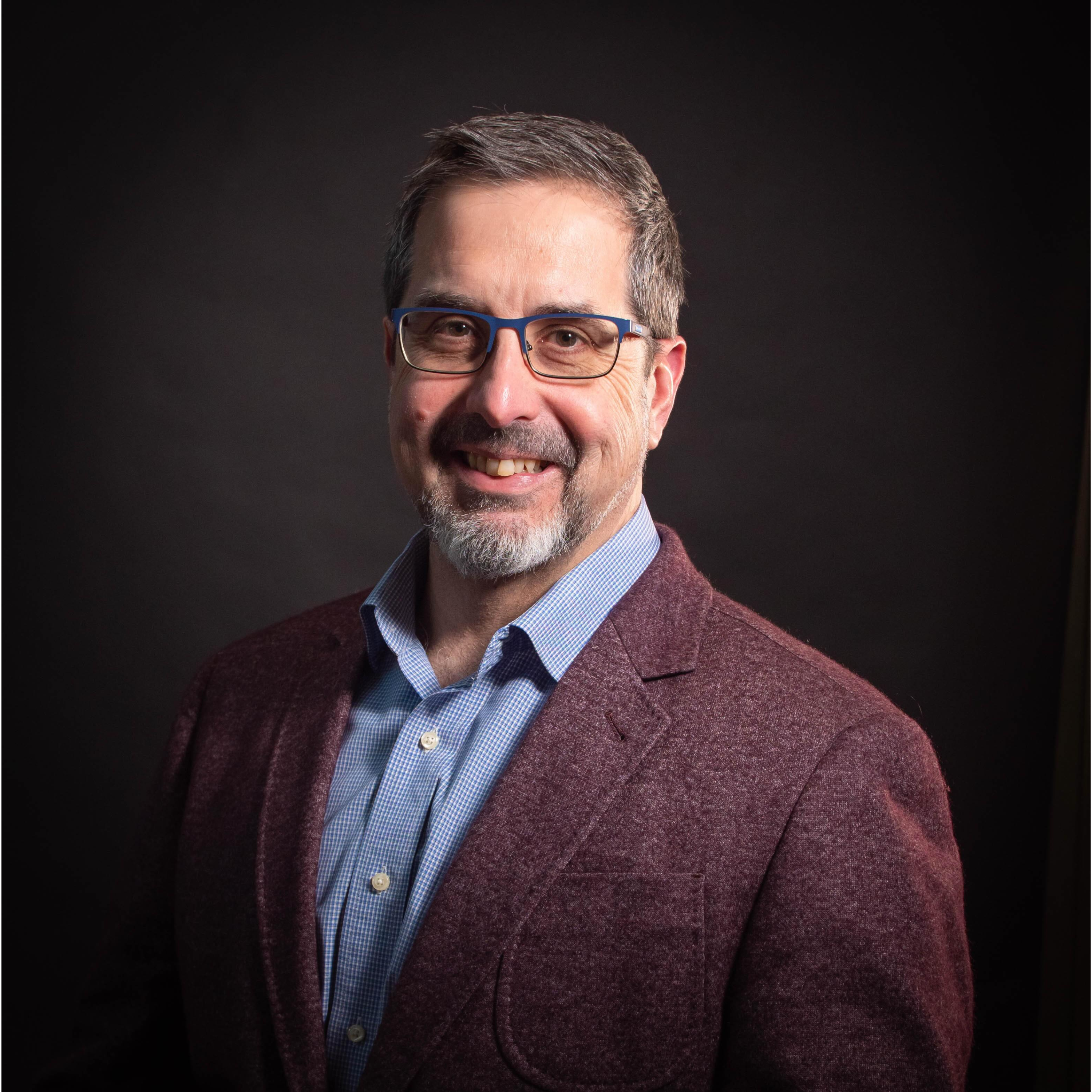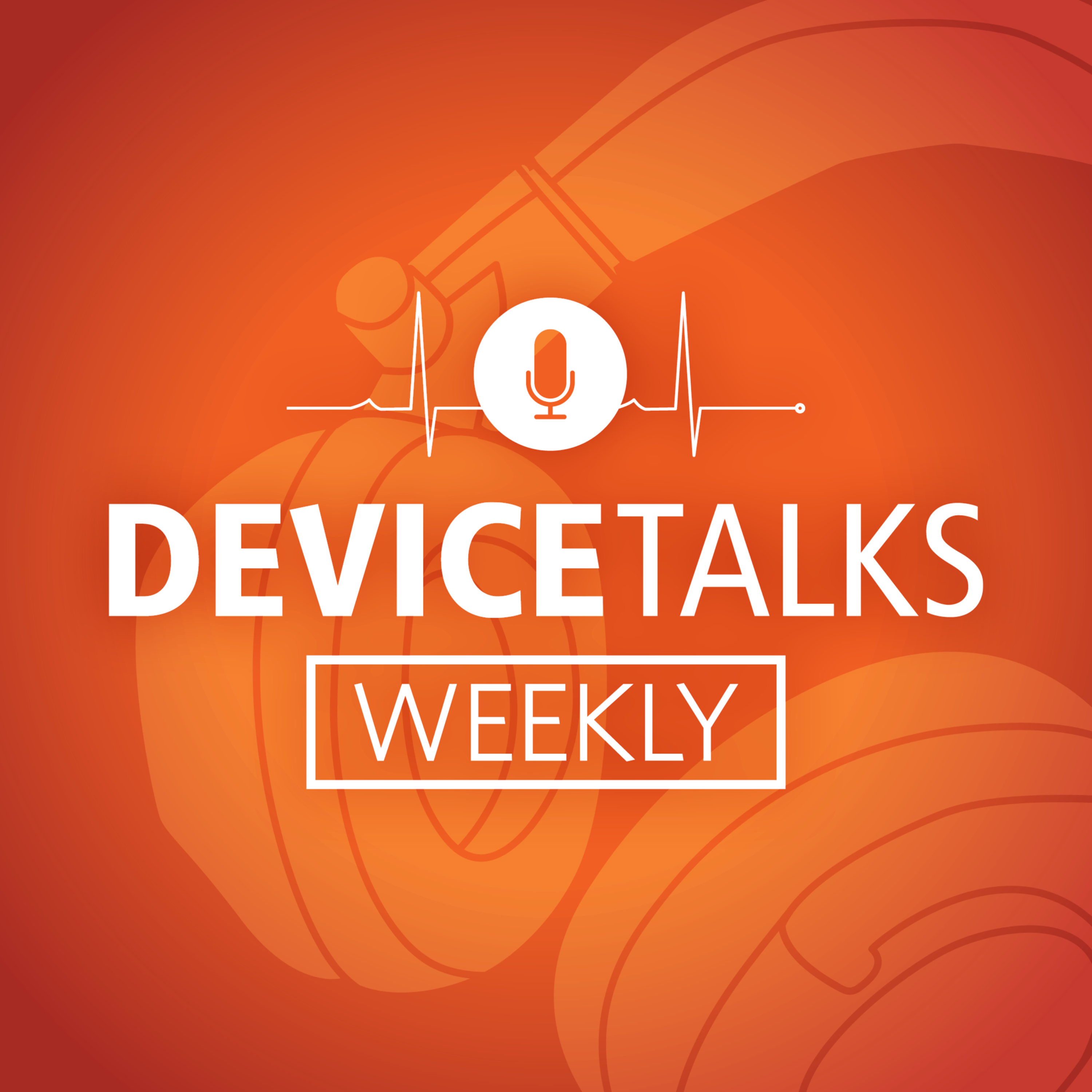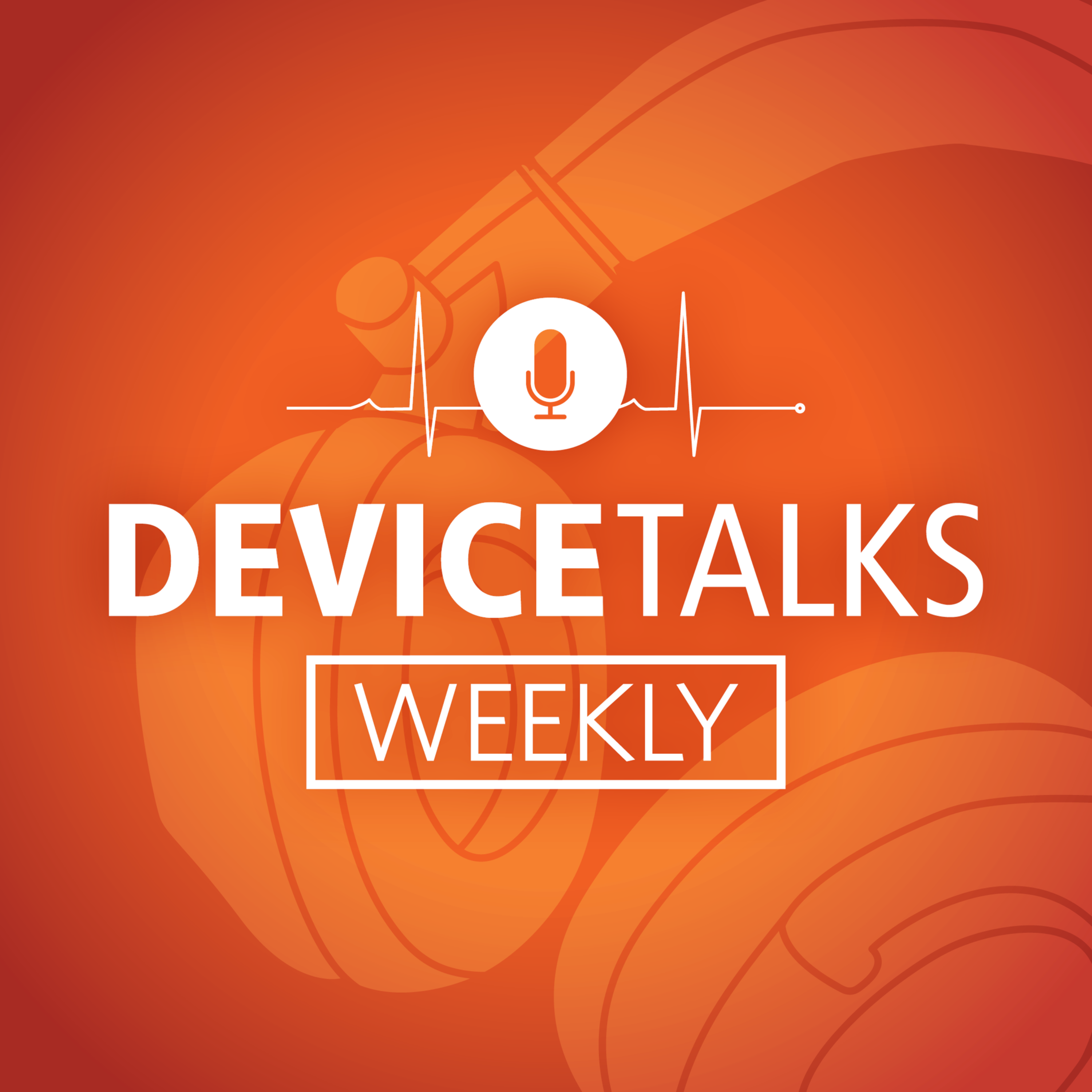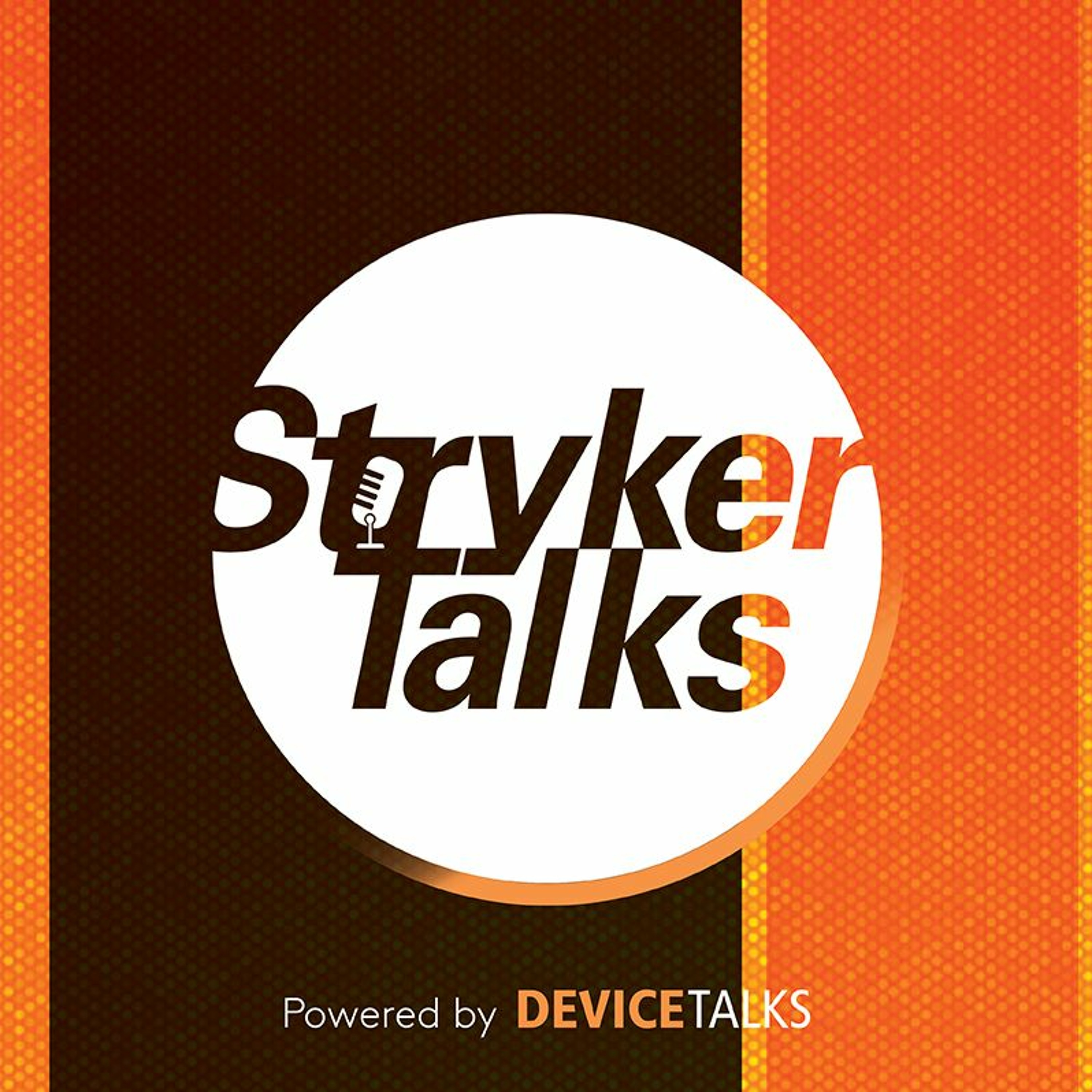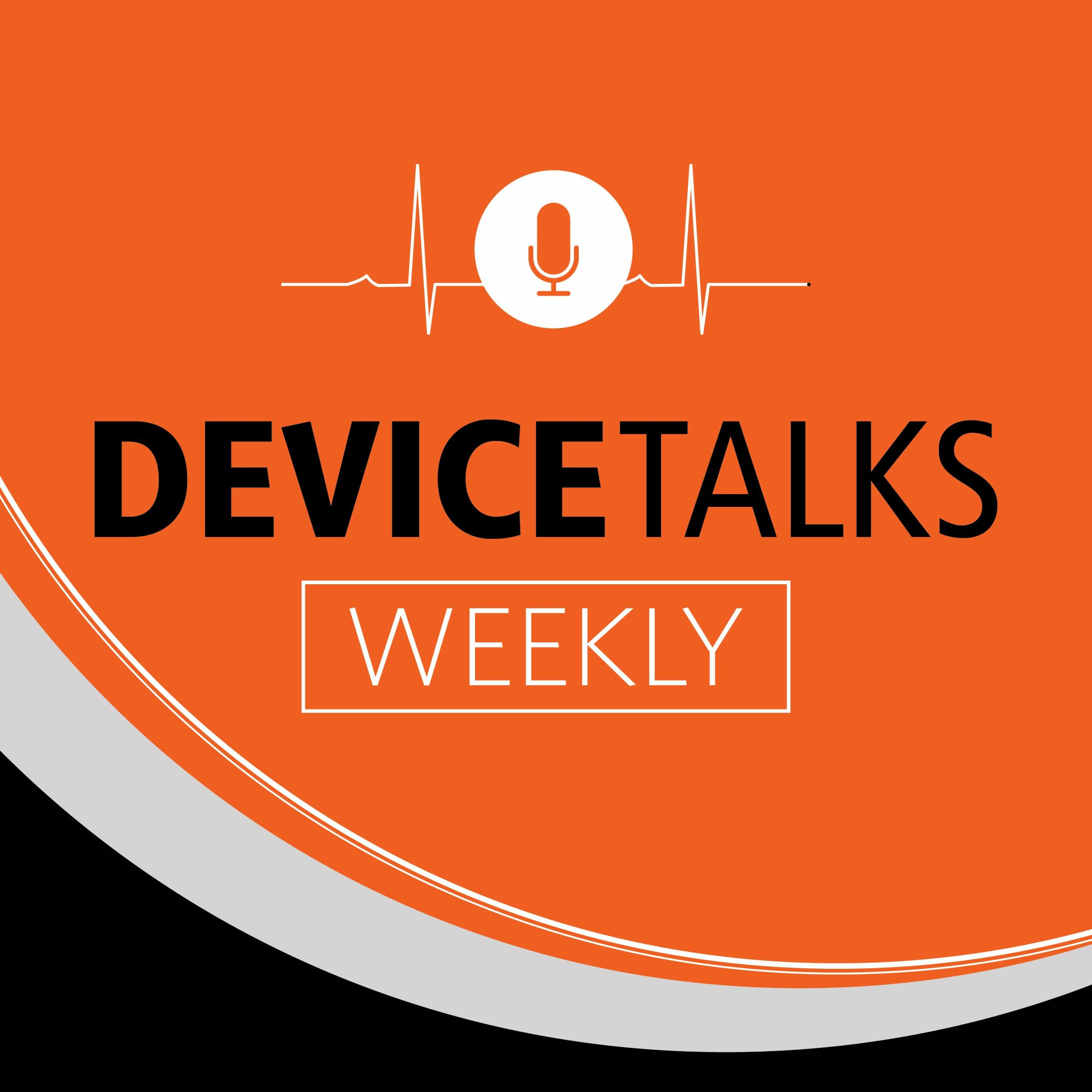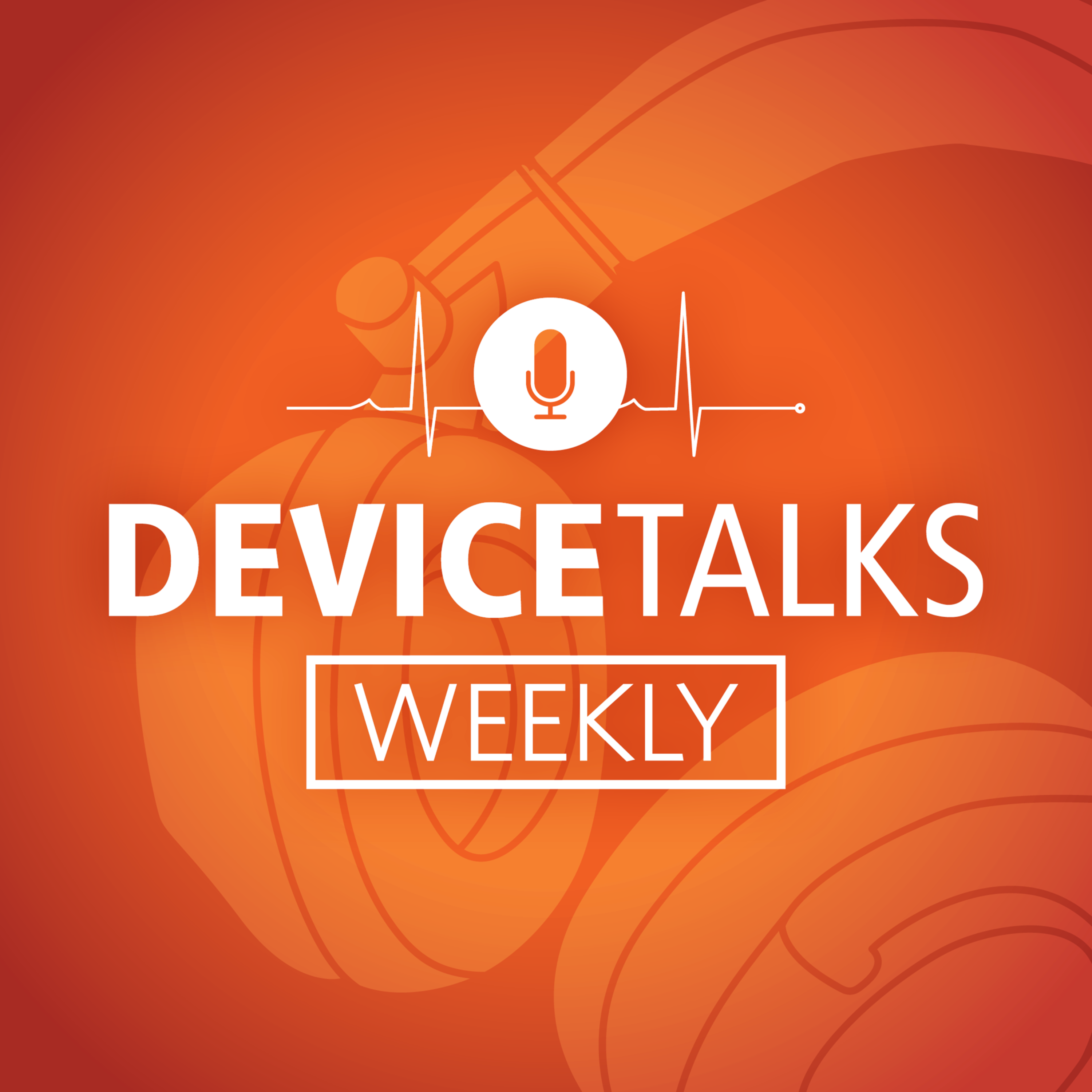Episode Transcript
0:00:05 - (Tom Salemi): Welcome to OlympusTalks, the podcast that brings you to the forefront of medical technologies as we explore advancements and innovations in GI. This eight-episode series features talks with healthcare professionals, patients, and Olympus subject matter experts. Listen as they dive into various aspects of GI health focused on improving patient outcomes through best practices. Stay tuned for conversations designed to educate, inspire and inform.
0:00:25 - (Tom Salemi): Olympus Corporation, its subsidiaries, and/or its affiliates. Olympus Corporation of the Americas and its parents, subsidiaries, affiliates, directors, officers, employees, agents, and representatives (collectively “Olympus”) do not represent to or warrant the accuracy, reliability or applicability of the Content. Under no circumstances shall Olympus be liable for any costs, expenses, losses, claims, liabilities, or other damages (whether direct, indirect, special, incidental, consequential, or otherwise) that may arise from, or be incurred in connection with, the content or any use thereof. The content of this podcast was paid for by Olympus. The positions and statements made herein by Brooke Schasteen-Smith and Rob Schasteen are based on their experiences, thoughts and opinions and do not necessarily represent the views or opinions of Olympus. Your doctor is your best source for information on the risks and benefits of products. If you are a patient, it is important that you discuss information about your health, along with the benefits and risks of products with your doctor.
0:01:46 - (Tom Salemi): Hi everyone, this is Tom Salemi of DeviceTalks. Welcome to the OlympusTalks podcast. We're going to focus on pancreatic cancer today. We've got a really powerful conversation to share, but first I'm joined with Rich Burde. Rich is the Director of Marketing at EUS Solutions at Olympus. Rich, thanks for joining us on the podcast.
0:02:07 - (Rich Burde): Thank you Tom. It's great being here.
0:02:09 - (Tom Salemi): It's a really powerful episode. I'm grateful to you at Olympus for allowing us to put it together. We're going to be sharing a conversation that we had with Rob Schasteen and Brooke Schasteen-Smith, father and daughter. Rob has been diagnosed with pancreatic cancer and we'll talk about their journey, their lessons, what they've done and just an amazing couple of people. And again really thank you for allowing us to share their story.
0:02:39 - (Tom Salemi): Rich I thought we just would set the table a bit, just helping people understand some background about pancreatic cancer. What should we know about this disease before going in?
0:02:54 - (Rich Burde): I think pancreatic cancer is near and dear to the Olympus family's heart because of many people within our network have been impacted by this disease and you know, we make the equipment that helps diagnose it. It has a lot of different organizations that help support and you know, PanCAN which we're going to talk about today. The Pancreatic Cancer Action Network has been, you know, a key driver of helping support these patients. And that's why Olympus has partnered with them and that's why we're here today to talk a little bit more about how it impacts patients and also caregivers.
0:03:42 - (Tom Salemi): Yeah. And we'll get into some ways that Olympus is supporting PanCAN. I think, folks, if you're listening to this, there's a chance that you or someone you love has been touched by pancreatic cancer. Rob brings a very strong and hopeful story to dealing with that. So I'm sure that you'll draw some strength from that as well. So, Rich, I think we've got the basis of understanding of where we are with pancreatic cancer. We'll get into what Olympus is doing to work with groups like PanCAN a little later in the podcast now, I think let's begin our conversation again with Rob Schasteen and Brooke Schasteen-Smith.
0:04:25 - (Tom Salemi): Well, Rob Schasteen and Brooke Schasteen-Smith. Well, thank you for joining our conversation.
0:04:30 - (Brooke Schasteen-Smith): Thank you for having us.
0:04:31 - (Rob Schasteen): Thanks for having us.
0:04:32 - (Tom Salemi): It's a unique opportunity for us to really hear from the patients. We frequently talk with medical device executives, occasionally physicians, but the patients are the most important constituency of the medical device industry and of healthcare. So we're here to talk about, well, your journey and your work with the Pancreatic Cancer Action Network. I'd love, though, just to learn a little bit about your story. You're both in the same house. I know that you're on different floors. Where is this house located?
0:05:03 - (Tom Salemi): Tell us a bit about where you are.
0:05:05 - (Brooke Schasteen-Smith): Yeah, we're both in my home, which is located in Philadelphia, Pennsylvania. Yeah. On different floors of the house.
0:05:15 - (Tom Salemi): Did you go downtown and destroy it after the Eagles won the Super Bowl?
0:05:19 - (Brooke Schasteen-Smith): I did not, no.
0:05:23 - (Tom Salemi): Good for you.
0:05:24 - (Brooke Schasteen-Smith): I remained calm. But there were a lot of, lot of fireworks. So my dog and my 16 month old were, we were just really hoping that everyone inside the home would remain calm with all the fireworks that lasted for over an hour.
0:05:39 - (Tom Salemi): Oh, your poor dog and your poor child. Dogs first. They hate the fireworks.
0:05:44 - (B): They do.
0:05:45 - (Tom Salemi): Well, let's talk a bit about the journey related to this podcast that started three years ago. Rob, can you give us a sense of where you were then and what was it that led you to the diagnosis of pancreatic cancer?
0:06:06 - (Rob Schasteen): Well, first of all, I was born and raised in Kansas City, so I'm a die hard Chiefs fan. So I was crying while everybody else was celebrating.
0:06:15 - (Tom Salemi): I wondered why you got a little sour when I mentioned that. I'm like, gee, I thought he'd be a little more jubilant. All right.
0:06:22 - (Rob Schasteen): But it was approximately three years ago, the job that I had, I was head of sales and marketing for a company in our fourth quarter, because one of the products that we produce is healthcare cards, personalized cards for open enrollment, et cetera, and that sort of thing with all that goes along with that. And so it's a very strenuous, stressful time. So I was used to very stressful fourth quarter, and I just started feeling really, really bad.
0:06:54 - (Rob Schasteen): And I was feeling like I'd never felt before. And quite frankly, it was all based on everything that happens from, you know, your chest down to your stomach wall. And I just I couldn't go to the restroom. And I just kept getting further and further along, and it's typical male fashion I didn't do anything about it. And I had a couple of good friends that came in, the husband and wife team that were retired nurses, and they looked at me and they said, you need to go to the hospital.
0:07:28 - (Rob Schasteen): You need to go to the doctor. And so I did. And long story short, after a couple of misdiagnosis, we found that I went back to my GP and I said, this is not a colon issue, I don't think. I've never had this kind of feeling before because the pressure was and the pain was really quite bad. She said, let's do some scans. And that's when they discovered the pancreatic cancer. And at the time, both Brooke and her husband had just bought a house and bought a place in Nashville, Tennessee, and my other daughter was living in Kansas City.
0:08:13 - (Rob Schasteen): And as you can imagine the toughest call any father can make to their kids is one like I made where I shared with them this news, because my last question to the oncologist was, so, okay, now we know that this is stage four inoperable pancreatic cancer. How long do I have? And he said, you've got three months, maybe six. And so telling your kids, that is not, you know, it's not the news that you want to give them. Anyway, so the very next day, I get a phone call, and Brooke and Kyle, her husband, say, well, we've decided we're going to move to Pennsylvania and help take care of you.
0:08:53 - (Rob Schasteen): And I said, no. And they said, well, it's too late, because we've already started the process. And then my other daughter from Kansas City did the same. So, I mean, I guess one thing I'm extremely blessed to have the support network that I do. And then from there, the journey really started. Brooke went to work in connecting us with a number of different doctors, and she can explain more about that. But we went for a second opinion, we went for a third opinion, and they all came back and basically was the same.
0:09:32 - (Rob Schasteen): And with pancreatic cancer, at least at the stage that I am in, once you set the treatment, the rest is about just following the treatment and going through the process. I'll have four chemotherapy treatments. And then after each, after the fourth one, I'll have scans, and then we take a look at the scans, and we just keep going again.
0:10:00 - (Tom Salemi): But going back to the moment where you heard the news, you, as a true dad, speak of the difficulty in letting your family know, but you had to absorb that information as well. And as we talked about before we pushed record here, you're really hoping this message finds people who need to hear about your experience. What was your process of absorbing that information, if you don't mind me asking? And you seem to be a really positive, pleasant gentleman.
0:10:37 - (Tom Salemi): How do you move forward with what you've heard?
0:10:43 - (Rob Schasteen): Well, that's really a great question, because I am not the most religious person. I've not been the most religious person in the world. But I can tell you, from the very moment that I was diagnosed to today, I've never been alone. And I've never felt. I've never truly felt like. I've always felt like there's hope. I've always felt like, you know, let me skip back to my very first treatment. Maybe here's a better answer.
0:11:20 - (Rob Schasteen): When I was sitting in the chair and they were hooking me up to all this stuff, and I didn't have any idea, really what to expect. And I was trying to act brave. I was scared to death. And the nurse looked across at me and she goes, I think she could tell I was a little nervous. And she said, hey, Rob, you know what? 80% of this is attitude. And the rest, there's nothing you can do. It's out of your hands.
0:11:48 - (Rob Schasteen): Well, that has resonated with me, and I have shared that with people that I've talked to over the last three years, and it's something I keep going back to. I mean, I've been very blessed to have a lot of mentors in my life, but also as it relates to being diagnosed with cancer. Some friends that have been. You know, I've got one good friend that's. He's a survivor of five years from a very rare form of throat cancer.
0:12:14 - (Rob Schasteen): People who are incredibly inspirational to me, and I'm a big believer, surrounding yourself with positive people. And I used to tell my girls when they were growing up, you're a product of your environment, and so try to really go down that road and make sure, because even with this pancreatic cancer, there are people out there that they have a problem with you being successful.
0:12:52 - (Rob Schasteen): But 99.9% of the people that I have met along the journey have been amazing. And I just would say that, I'm probably rambling a bit, but to answer your question, hopefully, is to say that, yeah, there are times where I want to crawl over in the corner, suck my thumb, and crawl up in a ball. But I had a good friend that told me that's the worst thing you could do. Go out and get the mail. Get up. Get up and move.
0:13:22 - (Rob Schasteen): Even if it's just to move a little bit, you got to move in the right direction. And there are times where I have to really tell myself that, sure. But for the most part, I've been, again, surrounding yourself with positive people and making sure that I look at this as I was given a second chance. It's kind of like I'm a golfer, so it's kind of like my mulligan. And so if I can be a better person each and every day, and I know this sounds,
0:13:58 - (Rob Schasteen): I don't mean to, but if this diagnosis and this disease causes me to be a better person and it gives me the opportunity to help people, then, you know what? It's been a great day. And so that's kind of what I try to focus on.
0:14:17 - (Tom Salemi): No, that's amazing. And I think we're at a time where positivity is much needed. We need a strong supply of positivity. And I think your message is one that folks will hear. And as we again talked about earlier, I think anyone who's gone through what you're going through would appreciate that very practical advice. And, Brooke, we heard your response to that phone call. I don't know if you want to delve into what you were feeling with the phone call, but how did you make the decision that you and your husband made to go and support Rob?
0:14:53 - (Rob Schasteen): Can I jump in real quick? The first. The first thing she did. The first thing she did was she got mad at me.
0:15:00 - (Tom Salemi): I asked her, Rob. I asked her.
0:15:01 - (Brooke Schasteen-Smith): I'll let that go.
0:15:03 - (Tom Salemi): You got mad at him, Brooke. No, come on.
0:15:05 - (Brooke Schasteen-Smith): I did, because. So he mentioned the fourth quarter and how stressful his job was, which we all know, all of us have jobs that can be very stressful. And I obviously had grown up experiencing that my whole life, right? He's my dad. But I knew that something was wrong this time, and we actually spent the holidays with him, and I said to him, something is wrong. You've got to figure this out. And I had this horrible feeling in the pit of my stomach that it was really something wrong. But my husband and I had already decided to move to Nashville, and my dad said, you still need to go, because we had been in the Northeast for, at that point, almost seven years and lived an hour from my dad and had always been my dad's, my best friend.
0:15:56 - (Brooke Schasteen-Smith): So we had always been so close to him, and we could get to him at any point in time. So it was a very ironic timing that the one person we moved the farthest from, we needed to be the closest to. And so when I had asked him, like, please keep me updated on scans, please keep me updated on the progress once you find out what's going on. And I had asked him the day that he got the result about it, and he had given me false information that everything was fine.
0:16:25 - (Brooke Schasteen-Smith): So to answer your question, I did initially get mad because he had told me everything was fine. And it was a dad decision, right? He needed to collect his thoughts and kind of marinate on them to figure out how he would tell my sister and I this news. So I understand it now, being a parent myself. But again, he's my best friend. So my first reaction was like, how could you lie to me about this? You know, you tell me everything you know. So.
0:16:52 - (Brooke Schasteen-Smith): And then I kind of collected myself. And it was also. When you get a diagnosis like this as a child who, again, is somebody that is so close to their parent, it is absolutely earth shattering for me personally. It rocked my world. And so I was very mad also that this was happening. Right? So it was, you know, both. And mad at him, but then also just mad at the situation. And then right after that, I decided I'm a problem solver, so I needed to go into solution mode.
0:17:26 - (Brooke Schasteen-Smith): And I immediately said, well, obviously we're going to be moving back to Pennsylvania. We're going to move and care for him. So that's exactly what we did. So he, I think, mentioned that we called him the Next day. But to correct that, we called him, I think, four hours later and said, guess what? We're coming. And then a week later, we had everything packed up that we had just unpacked, and we were on our way in a U haul back to Pennsylvania.
0:17:53 - (Tom Salemi): Oh, wow. Yes. Thank you for sharing that. And as a son who's had aging parents who have been ill, and as a dad who has grown parents or grown kids, rather, who I would have to communicate to, I see both sides. I'm like, well, of course he did that then.
0:18:08 - (Tom Salemi): Well, of course you're angry.
0:18:09 - (Tom Salemi): It seems you both had very, very natural responses.
0:18:13 - (Brooke Schasteen-Smith): And understanding it was a shock, right. Because I had just been told everything was fine. So then I was like, wow, everything's fine. What is going on? That's so strange. And I know you don't know me too well, Tom, but I'm a planner, and I kind of need things to, like, go a certain way. So to get the news that this had happened was, it was shocking. Right? Again. And devastating. So I needed some time to process myself, if that makes sense.
0:18:40 - (Tom Salemi): So, Brooke, if you would, I mean, you. You came to an understanding of where Rob was, where your dad was at that point in time with his diagnosis. It's as we've talked about, something horrible to process. What were the next steps that you took to ensure that you were all in the best position to succeed?
0:19:05 - (Brooke Schasteen-Smith): Absolutely. So immediately I started looking at second opinions. That is something that is so critical, in my opinion. You know, it is great to have an amazing care team, which, thankfully we do, and we stayed with them, but we really wanted to get second opinions from other physicians that we felt, we really wanted to explore every option possible. So I did a lot of research on opportunities. We live in the Northeast, so we were able to go to a handful of facilities, and that was extremely helpful. You know, every physician, we looked at the scans with them.
0:19:48 - (Brooke Schasteen-Smith): We really dove into what treatment options could look like. And again, this is a marathon. This is not a sprint. Right? So we really wanted to understand the longevity of what that marathon could look like. And I would recommend anyone in a care partner or a patient or if you're in a duo like us, please get the second opinion, because it's extremely important to be able to ask as many questions as you possibly can and to advocate for yourself or for your loved one, because there are going to be a lot of times where maybe the loved one, the patient is,
0:20:29 - (Brooke Schasteen-Smith): you know, you need to be taking notes or you need to be kind of jumping in to really ensure that all that information is going to be digested. And I will say I think it's been part of our success as a team, has really been being able to lean on each other to get that. And so if someone gets this diagnosis and is able to have someone help them advocate for themselves, but also be that person to make the phone calls, to get the second opinions, to go to all of the appointments and take all of the notes, it becomes almost a full time job, truly.
0:21:03 - (Brooke Schasteen-Smith): But it is really worth it to have all that, the information so that you can go into a decision like this which can be life saving or can help you elongate your lifespan in our case and truly make that educated decision and the best case scenario. So that was our immediate next step, was truly making sure that we were educating ourselves, finding out all the information, getting those opinions and those doctor's visits. And then we had to come up with the biggest decision which was what type of care would, would we choose?
0:21:40 - (Tom Salemi): Rob, did you decide on that strategy? I'm kind of curious as to what advice you got initially and what led you to getting multiple opinions. I mean, it is common to get a second or a third opinion or at least the advice is common. But I think very often people think a diagnosis is kind of a universal truth for everybody. Like I've been diagnosed with this, therefore my reality is that. And there's no way to hold it up to a light and see it any differently.
0:22:09 - (Tom Salemi): You obviously had a very different experience.
0:22:13 - (Rob Schasteen): Yeah. And I think part of that is just us, we're both drivers and we don't take no for an answer. And I honestly there was a part of our oncology team that didn't want to hear that and we were like, well, we're sorry but we're going to keep asking the hard questions and we're going to be persistent. So I would just say to anybody there's no stupid question.
0:22:49 - (Rob Schasteen): Keep asking questions. If you don't understand the answer, that's okay. Because you know what? 90% of the people probably don't either. I didn't. So I had to keep asking this, you know, tell me again and make them break it down for you. I would also say that the nursing staff is, I've been so blessed. They're second to none because since I've been doing the mentorship with PanCAN I talk to people all over the country and the experience is not the same.
0:23:20 - (Rob Schasteen): And we have a great nursing staff. And they, not only do they know me, but they don't ever hesitate to answer a question. They break it down. I mean, they are amazing. So lean on them. You know, I lost 45 pounds. I lost my hair. And it was a very. What's the word? I don't know.
0:23:46 - (Brooke Schasteen-Smith): It was humbling for you, right? It was a humbling experience.
0:23:52 - (Rob Schasteen): A quick story. My dad was a barber in small town Kansas. So, you know, my hair was everything. I remember when I got out of the shower, my hair was falling out. I looked at myself and I started to laugh. And I thought, my dad's looking down on me, going, well, you're going to lose it one way or the other, buddy. But anyway, all I have to say is that you also have to have a sense of humor or try to have a sense of humor.
0:24:22 - (Rob Schasteen): I understand. It's not, believe me, it's not easy. But at the same time, I tell people that I have pancreatic cancer. I don't have a choice. But Brooke and all the other people around me, the caregivers, they have a choice. They could walk away. They don't have to listen to me, they don't have to put up with my nonsense. So remember that, you know, you don't have a choice, unfortunately. But the people that are supporting you, the people that are holding your hand, the people that are with you, they do.
0:24:59 - (Rob Schasteen): And, you know, thank them, because believe me, their job is a lot harder than mine.
0:25:05 - (Tom Salemi): I was going to ask, how do you get on the good side of nurses? Do you bring something with you? Pick up some coffee on the way in?
0:25:15 - (Rob Schasteen): Yeah. You know, having a grandbaby helps. Everybody likes to hear about my grandbaby.
0:25:25 - (Tom Salemi): Good advice there.
0:25:26 - (Brooke Schasteen-Smith): You know, what I will say, though, is that I think going back to the very first infusion that we had, and my dad talked about this, the nurse looked at him and said, and us, I think she could tell we were terrified. And she said, you've got this. 80% of this is mental, and it is your attitude, and I can tell you want to win. And we both looked at each other and it clicked like, okay, she believes in us.
0:25:55 - (Brooke Schasteen-Smith): There's somebody. And I think it was that. And then, honestly, ever since then, just making those relationships, because I do think that there's something behind the people that are putting the medicine in you or that are spending that time with you. There are days where we're in a chemo ward for many, many hours, and those people make a humongous difference in our lives drastically.
0:26:21 - (Tom Salemi): That's amazing.
0:26:22 - (Brooke Schasteen-Smith): Yeah.
0:26:23 - (Tom Salemi): So let's talk a bit about the Pancreatic Cancer Action Network, because I think this is filling a role that both of you have identified as being a very important part of living with this disease. Brooke, not a lot of people, maybe not everyone who has a disease like this brought into their world responds by working with an organization like this. Some people focus on their own situations, and then when it's passed, they move on to the next struggle in their life.
0:26:55 - (Tom Salemi): What drew you to be involved with the Pancreatic Cancer Action Network?
0:27:01 - (Brooke Schasteen-Smith): Yeah, Tom. So I mentioned that when we first got this diagnosis, there were a lot of emotions that were happening. But again, I'm also problem solver. So I immediately started researching who could help, what could I do, who could I get involved with that may have educational resources that may have scientific information for me to read? You know, everyone talks about clinical trials. There's so many different avenues to explore once you have a diagnosis like this.
0:27:33 - (Brooke Schasteen-Smith): And Pancreatic Cancer Action Network, PanCAN, was one of the very first organizations that I got involved with, and I reached out to them actually the same day that my dad made that phone call to let me know and within.
0:27:51 - (Tom Salemi): Did you just Google it?
0:27:52 - (Brooke Schasteen-Smith): I did. I just googled it and came across it. We also have, actually, unfortunately, another family friend of ours who was involved in PanCAN. And so she had mentioned that it could be a resource for us. And so through that as well, you want to hear other people's experiences too, right? So I had reached out to them to ask, is there anything that I should do? What should I get involved with?
0:28:21 - (Brooke Schasteen-Smith): And within a week, we had a caseworker that was working with us on every piece of our journey. They have a whole clinical trials section of their education that you can dive into, which we were spending a lot of time on. Just, would this make more sense? And so they send you a packet in the mail that has information on nutrition, which is super important for pancreatic cancer patients. My dad had mentioned he lost 45 pounds. So anything that was nutrition, I was talking to different dietitians.
0:28:57 - (Brooke Schasteen-Smith): They, again, they have a whole nutrition element of kind of the services that PanCAN provides. So I had immediately gotten involved, and I was trying to soak up every ounce of any information that someone could give me. And PanCAN has been a humongous resource and then immediately started getting involved. My dad was diagnosed in January, and we had a PanCAN Purple Stride team that April. So within a couple of months
0:29:29 - (Brooke Schasteen-Smith): And we're able to raise over $10,000 that year. So we really just jumped in full, full speed ahead.
0:29:36 - (Tom Salemi): That's amazing.
0:29:37 - (Brooke Schasteen-Smith): Yes.
0:29:38 - (Tom Salemi): Yeah, Rob. I mean, I think a lot of people, again, I don't know how many, some people who are given this diagnosis, I think, would retreat into their own worlds and say, this is my problem. I don't want to be amongst others who share that problem. They want to kind of deal with themselves. What was your reaction was seemingly opposite of that. Why did you want to get involved with this organization and what led you to serve as a mentor now? And what is all this experience?
0:30:07 - (Tom Salemi): It sounds like an incredibly additive experience and a very supportive experience for you.
0:30:14 - (Rob Schasteen): Well, you know, as a part of being diagnosed and then starting treatment, I was, basically, I retired too. So when you do that, I can tell you, for somebody who's been, I mean, my social network was my lifeline. You lose that very quickly every. I think most people do. And so it's a part of your identity. I think Brooke could tell I was searching a bit because, I was going through treatment, but it didn't mean that I was not.
0:30:52 - (Rob Schasteen): I didn't want to not be. I just didn't want to wilt away and not be of some benefit or some useful, if I could be useful. So Brooke said, hey, dad, I got an idea. Why don't you be a mentor for PanCAN? And I said, what's that? And she said, well, it's that you. They would identify people that are in various stages of the same situation that you're in that would like to talk to you, in short. And I said, well, if you think I could help, then great.
0:31:28 - (Rob Schasteen): And so that's the road we went down. And so I interviewed with, I laughingly talked, I think I interviewed more with PanCAN than I did two Fortune 500 companies. But I also get it. They don't want just anybody, because you're talking to people that the first time you talk to them, they may have just been diagnosed. So they're in a state of shock and, they can be extremely depressed.
0:31:56 - (Rob Schasteen): And so it's a matter of what are the right things to say. And, not everybody wants you to be a cheerleader. They just want you to shoot them straight. So it's kind of trying to figure that out. I guess I would blame Brooke for pushing me in this direction. And you know what? It's been as good, if not better for me than the people I'm talking to from a therapeutical perspective.
0:32:29 - (Rob Schasteen): And I've been blessed because, yeah, we've lost some folks along the way, but the majority of the people that I do talk to that are still with us, that are still going down this journey, have stayed in touch with me. So it's been like our, I say welcome. Welcome to the team is kind of how we describe it. Then I'll shoot pictures out of like Brooke said that we call it Team Shaz, the team for our PanCAN team.
0:33:02 - (Rob Schasteen): And she also. I'll brag on her real quick, but she also was selected by PanCAN to run in the New York Marathon for pancreatic cancer. And she just had a baby. And I tried to talk her out of doing it, but you can tell she's a little strong willed. So that did it. So she ran. She did it, she finished it. And I'm very proud of her for that and for many things, but that was kind of cool. And that was just this last year.
0:33:32 - (Tom Salemi): Did you run a race? You must have run some races before or did you just?
0:33:36 - (Brooke Schasteen-Smith): It was my fourth New York City Marathon.
0:33:38 - (Tom Salemi): Oh.
0:33:40 - (Brooke Schasteen-Smith): But it was truly the most meaningful to. You know, you train daily when you run a marathon. But I knew that my dad would be cheering me on at the finish line, and that's what kept me going. And I made it the analogy earlier that this is a marathon, not a sprint. And to be able to run a marathon for him and others that are going through the same situation that we are in it pushed me every single training mile and every single dollar that we raised.
0:34:13 - (Brooke Schasteen-Smith): During the race itself, this is a really special, PanCAN has created a really special community, and we're really fortunate to be a part of it. We both say that this diagnosis crushed us, but it also rebuilt us in a way. We kind of like my dad said, this is his mulligan. But we have both kind of have different lives now pouring into this, and it's been, we're really fortunate to have this. It's unfortunate that everyone that gets a diagnosis like this has to be part of this community. But if we can bind together and be there for each other, then that's really what we want to do. So we are grateful and I was super, super thankful to be able to run the marathon for PanCAN and have my dad there, as I mentioned, cheering on. That was really special.
0:35:09 - (Tom Salemi): So Brooke, I kind of jumped right into the talk about PanCAN, the Pancreatic Cancer Action Network, but I don't think we've really talked about what exactly it is. What type of entity is PanCAN? What can you tell folks about the organization?
0:35:22 - (Brooke Schasteen-Smith): Yeah, so PanCAN is the Pancreatic Cancer Action Network. And the mission is truly to help those that are in a similar situation as us who have been diagnosed with pancreatic cancer to get help. They are a resource, a non profit resource that daily is partnering with families like ours to provide essentially a helpful lifeline for us. Whether it is scientific information, clinical trial information, information on what the next step is.
0:36:00 - (Brooke Schasteen-Smith): They provide caseworkers for people. The mission is truly to take an action to improve the lives of those families that have been impacted by a pancreatic cancer diagnosis. And that involves scientific research, that involves helping others through education. As I mentioned, it's been a huge community element for us and a way for others to knowledge share and to truly advocate for patients and caregivers and loved ones that have been, again, impacted by a diagnosis of pancreatic cancer.
0:36:44 - (Tom Salemi): That's great. And Rich, let's talk about Olympus' role. I mean obviously provide so much of the great equipment that's used to, in the diagnosis and treatment of this. It's great that you're also involved with groups like PanCAN. How did Olympus become involved with that? And talk a bit about your relationship, Olympus' relationship with the group?
0:37:05 - (Rich Burde): Yeah, so my partner in endoscopic ultrasound at Olympus, she launched a website for Olympus called pancreaticcancerscreening.com and the goal there was for patient outreach to provide patients information about pancreatic cancer, about what to expect if you do use some of the procedure with Olympus equipment. Endoscopic ultrasound has been around for over 40 years and we launched the first equipment in this space 40 years ago and today it's become a device that is used to really look at the pancreas.
0:37:48 - (Rich Burde): So we're trying to help people understand what the procedure is and what equipment is being used to take the fear out of it as well, and maybe set people at ease. And through that website, we also started having a screening search function where you could put in your state and find a screening center near you, which led us to start also looking at other organizations that were focused on pancreatic cancer.
0:38:20 - (Rich Burde): We stumbled on the Pancreatic Cancer Action Network. And about the same time, Alyssa's family member had become diagnosed with pancreatic cancer. So she got involved in the Purple Stride Walk, which led to us reaching out to the local chapter, Philadelphia chapter, and Olympus sponsoring the Purple Stride event that's held once a year in Philadelphia. We started that in 2022. And I can tell you it's an incredible day, an event, a very emotional day.
0:38:55 - (Rich Burde): You get to meet both survivors and caregivers and just people that are all focused on the same mission. So PanCAN does an incredible job of being a patient advocate and helping them seek or helping them find care. And, we as an organization, wanted to be part of that as their social outreach.
0:39:25 - (Tom Salemi): That's fantastic. Well, Brooke, I mean, someone listening to this point of the podcast, obviously they're sure they're following your fantastic story, but they may also be interested in reaching out to the group. What's the best way of reaching out to PanCAN?
0:39:42 - (Brooke Schasteen-Smith): Definitely the easiest way is to go on and search for pancan.org and you will find a website with a plethora of information, tons of ways to dive in and really navigate your own way of working with them. There's also a number to call.
0:40:03 - (Tom Salemi): Rob, you're the reason we're all here. You brought us all together. We'll give the final word to you. What's something you learn that perhaps people don't learn until they go through this? What's something that maybe has given you some strength or peace of mind?
0:40:19 - (Rob Schasteen): Sure. Well, I guess two things. One would be is that don't give up. And it's hard. I get it. But you know what? I'm 60. Life's hard. And we all get curve balls. And everybody's got their own hell. I mean, I'm looking at everyone. I'm sure we've all got our own stories. You can, lean on those people around you. It's okay. The other thing I would just add is that if you. If you haven't get genetic testing, it does help not only you, your family, from shedding light on
0:41:02 - (Rob Schasteen): what mutations you might have that might help with your treatment, but it also should help your oncology team.
0:41:14 - (Tom Salemi): That's amazing. In the testing, did it show anything in particular about your root cause or about your family?
0:41:23 - (Rob Schasteen): In my case, yeah, sure. In my case, I have two mutations. They are not hereditary. But the good news is that it appears that that may be why the treatment is the chemo treatment is working as well as it has. That's part of the reason.
0:41:46 - (Tom Salemi): Yep. Well, I can't begin to thank you for sharing your story today and for letting us into your lives and for the work you're doing and the fight you're fighting. So thank you so much for joining us on the podcast.
0:42:01 - (Rob Schasteen): It's a pleasure.
0:42:03 - (Brooke Schasteen-Smith): Thank you so much for having us.
0:42:04 - (Rob Schasteen): Nice to meet y' all.
0:42:07 - (Rich Burde): Thank you.
0:42:09 - (Tom Salemi): All right, well, that is a wrap. Thanks so much for joining us on this episode of the OlympusTalks podcast. Thanks, of course, to our corporate partner, Olympus for working with us and making this great podcast series. In our next episode, we'll explore Olympus' role in EUs from a healthcare provider provider's perspective and how clinical application specialists support their customers. If you'd like to find the other episodes of OlympusTalks, please visit olympusamerica.com/
0:42:41 - (Tom Salemi): podcasts. Of course, we'd also love you to follow our DeviceTalks Podcast network so you don't miss a future episode of OlympusTalks. Also, connect with DeviceTalks on LinkedIn. Connect with myself, Tom Salemi. I'm Editorial Director and our Managing Editor, Kayleen Brown. So we'd love to be part of your future MedTech conversations and help you find additional episodes of OlympusTalks. Well, that's it, folks.
0:43:07 - (Tom Salemi): Thanks again for joining us on this episode of the OlympusTalks Podcast. Potential complications that may be associated with endoscopic ultrasound include, but are not limited to the following, sore throat, infection, bleeding, perforation and or tumor seeding when EUs, FNA or FNB is performed.

